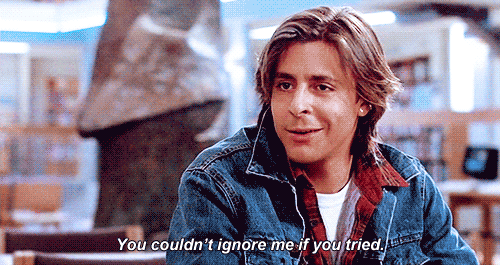The Background
There are many benefits to being confident -- confident people are considered more believable, they have more social influence and they're more likely to be chosen for leadership positions than less confident peers. So it doesn't seem like a huge leap to assume that confidence can probably result in romantic advantages, too. But when it comes to confidence in the dating world, is more always better? And if yes, how? A series of studies compiled into one paper published in the Personality and Social Psychology Bulletin this month delved into whether or not overconfidence benefits daters. Spoiler alert: If you feel like you're only attracting smug, full-of-themselves types, these findings might provide some insight.
The Setup
The comprehensive study included five separate experiments: For the first four, researchers brought in various groups of gay, straight and bi-identified men and women, divided about evenly between genders, to create online dating profiles. To suss out who among them might be a little too sure of him or herself, the researchers had participants fill out a questionnaire that asked them to rate how familiar they were with certain topics -- some of which weren't actually real. Those who claimed expertise on fake topics like "ultra-lipids" and "sentence stigma" revealed themselves to be a little too confident.
But when we look at someone's dating profile who appears rather confident, we don't typically know if high self-regard really translates into high quality. Though the first study showed that overconfident people were considered more desirable by people who viewed their profiles and perceived their confidence, a second experiement showed that overconfident people were also considered more arrogant -- a well-established not-so-good quality. This arrogance counteracted the boost in desirability people's overconfidence gave them, essentially creating a neutral effect in the dating world.

Here's where it gets interesting: Researchers added a competitive element to subsequent studies to see how overconfident people fared compared to their less confident counterparts. A hypothetical dating scenario was created wherein 556 new participants were asked if they'd compete with the participants from a prior study for a potential partner's attention. These new "competitors" also created dating profiles and had their confidence levels measured. According to the researchers:
The competitors were then asked to imagine that they were participating in a singles' mixer organized by the dating site and that, having read the profiles of everyone in attendance, they were only interested in one individual. Unfortunately, they arrived at the mixer to find the focus of their desire in conversation with a potential rival (of the same sex as the participant).
The competitors were then shown five profiles from the previous versions of the study and told that these were the people they were competing with for the attention of the individual who sparked their interest. They were then asked how easy they thought it would be to compete with another suitor and whether or not they'd join a communal table with the person the wanted to talk to, and the person they already talking to.
The Findings
With the addition of a competitive element, the researchers found that competitors were less likely to compete with rivals whose profiles made them appear confident and arrogant. Overconfident rivals were considered more difficult to compete with, so competitors were more likely to opt out of the hypothetical romantic situation entirely. Instead of trying to flirt with the desired individual, they chose not to sit with him or her if it meant sitting with the overconfident rival, too.
The researchers performed an additional experiment which reaffirmed that overconfidence deterred competitors but also found that -- on the flip side -- overconfident daters were more willing to take a seat at that table and compete with a rival for a romantic partner. That said, overconfidence didn't necessarily increase desirability when prospective partners read their profiles.
Just imagine that you're at a bar and a low quality, overconfident type approaches you and starts a conversation. All the while, there could be higher quality shy people who are interested, but now they're too intimidated to approach you -- they see how confident that person who's chatting you up looks. So now it's game over for high-quality shy people, while the low-quality overconfident one has a solid in.
After completing an agent-based modeling in a fifth study, the researchers found that overconfidence actually does boost a person's chances of romantic success in competitive environments. It may seem counterintuitive, since we tend not to like egotistical people in theory, but these studies suggest that overconfident daters succeed more often simply because they have the chutzpah to stay in the game.

The Takeaway
Of course, not every overconfident person is bad per se. But if you've dated cocky schmuck after cocky schmuck, maybe it's not that your picker is broken. It might be that you're just more aggressively pursued by overconfident, potentially schmuck-y people, which makes it harder to notice the shy catch who's too scared to come up to you while Mr. or Ms. Overconfident is sitting beside you all night. So it's not you -- it's them. Feel better about your poor dating choices now?
-- This feed and its contents are the property of The Huffington Post, and use is subject to our terms. It may be used for personal consumption, but may not be distributed on a website.
from Healthy Living - The Huffington Post http://www.huffingtonpost.com/2015/06/23/overconfidence-dates-study_n_7614182.html
via Sol Danmeri
No comments:
Post a Comment